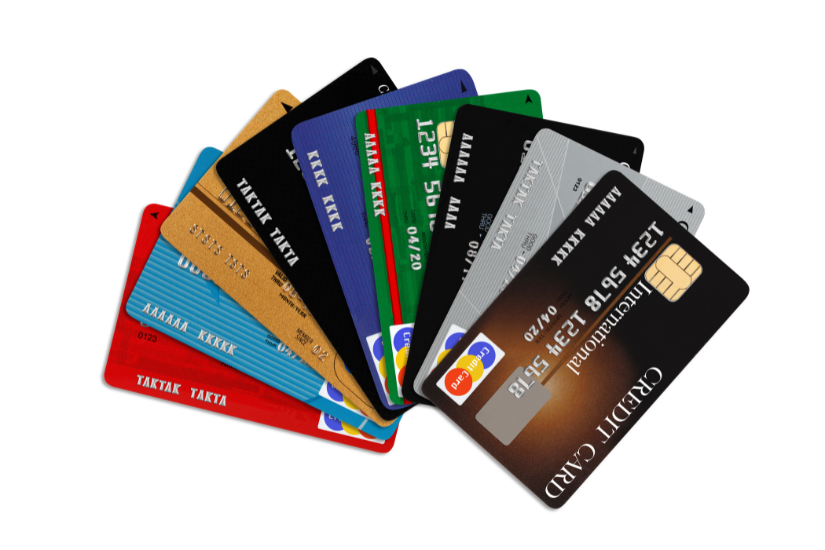How Much Will a Secured Credit Card Raise My Score? Are you curious about the impact of secured credit cards on your credit score? This article breaks down the basics and explores how secured cards work to raise your credit score.
Whether you’re a credit newbie or seeking informed financial decisions, join me to uncover how to raise your credit score with secured credit cards.
This post contains affiliate links, which means I may receive a small commission, at no cost to you, if you make a purchase through a link.
What Is A Secured Credit Card?
A secured credit card is a card designed for individuals who are either building their credit from scratch or working on rebuilding it after facing some financial setbacks.
Unlike a traditional credit card, a secured credit card operates on the premise of collateral. To obtain this type of credit card, applicants are required to make a cash deposit, which serves as a security measure for the issuing financial institution.
This deposit essentially becomes the cardholder’s credit line, dictating the maximum amount they can spend. This characteristic adds a layer of security for both the cardholder and the lender, creating a mutually beneficial arrangement.
How Does A Secured Credit Card Build Credit?
At its core, the journey of credit-building through a secured credit card begins with a fundamental principle—responsible use.
When you use a secured credit card, your payment history is reported to the major credit bureaus – Equifax, Experian, and TransUnion. This means that every on-time payment contributes positively to your credit history, showcasing your ability to manage credit responsibly.
A pivotal factor in credit scoring is the credit utilization ratio, representing the percentage of your available credit in use. By maintaining low balances relative to your credit limit, you demonstrate financial responsibility, positively impacting your credit utilization ratio and, subsequently, your credit score.
Many secured credit cards offer the potential to transition to an unsecured card after demonstrating responsible use. This transition often involves the return of the initial deposit and an increased credit limit, marking an enhanced credit profile. The move from secured to unsecured signifies a significant milestone, bringing improved terms and potential additional perks.
Credit scoring models consider the diversity of your credit accounts. Introducing a secured credit card to your credit portfolio enhances your credit mix, potentially raising your credit score. This diversity underscores your ability to manage different types of credit, strengthening your creditworthiness in the eyes of lenders.
How Much Will A Secured Credit Card Raise My Score?
A secured credit card can help your credit score, but it’s hard to say exactly how much. The improvement depends on how you use the card, how long you use it, and your starting credit situation.
Just getting approved for a secured credit card won’t automatically raise your score. To build your credit, use the card responsibly—pay on time and keep your spending low.
If you use the secured card wisely and also manage your credit in other ways, you might see a small score increase in a few months. Over a year, the impact could be more significant, but it also depends on your starting credit situation.
How Long Does It Take To Build Credit With A Secured Credit Card?
The timeline for observing improvements in your credit score after acquiring a secured credit card is not a one-size-fits-all scenario. Various factors come into play, contributing to the variability in the pace and extent of score enhancement.
One primary determinant is the starting point of your credit score. If you begin with a lower score, the potential for noticeable improvement may be more pronounced compared to someone starting with a moderately high score.
Additionally, the overall health of your credit history plays a pivotal role. If your credit report is marred by numerous negative entries, the positive impact of a secured credit card may take longer to manifest.
On the contrary, if your credit history is relatively clean with only a few blemishes, the secured credit card’s influence may be quicker and more pronounced. The impact of a secured credit card on your credit score can be significant, but it’s important to set realistic expectations.
On average, individuals may see an improvement in their credit score within a few months of responsible use. The exact increase, however, varies depending on several factors, such as the starting point of your credit score and the overall health of your credit history.
A secured credit card won’t magically skyrocket your credit score overnight. Patience and consistent responsible use are key. As you demonstrate reliability in managing your credit, your score will gradually reflect these positive habits.
How Many Secured Cards Should I Have To Build Credit?
When it comes to building credit using secured credit cards, the question often arises: How many secured cards should one have to expedite the credit-building process?
While having one secured credit card can undeniably make a positive impact on your credit score, the prospect of utilizing multiple secured cards warrants closer examination.
For many individuals embarking on their credit-building journey, a single well-managed secured credit card is often sufficient to achieve positive results. However, some individuals may find it beneficial to diversify their credit profile by having more than one secured card.
This strategy may be particularly relevant for those with specific financial goals, such as obtaining a mortgage or car loan in the near future.
Evaluate your financial goals, credit-building strategy, and ability to manage multiple accounts responsibly to determine the approach that aligns best with your individual circumstances.
Regardless of whether you choose to manage one or multiple secured credit cards, the key to building credit effectively remains responsible use.

How To Choose A Secured Credit Card
The market for secured credit cards is flooded with options, each with its own set of terms, fees, and benefits. Let’s delve into 5 key considerations that can guide you in making an informed decision.
1. Understanding The Fees:
One of the primary factors to examine when choosing a secured credit card is the annual fees. While secured cards typically have fees associated with them, the range can vary widely.
Some cards may have lower annual fees, while others may offer additional perks that could justify a higher fee. Take the time to carefully review the fee structure of each card, considering not just the annual fee but also any additional charges, such as application or processing fees.
2. Interest Rates Matter:
Another crucial aspect to factor in is the interest rate on the card. While secured credit cards often have higher interest rates than traditional credit cards, the rates can still differ among various options.
Compare the Annual Percentage Rate (APR) of each card, keeping an eye on any introductory rates that may change after a certain period. Understanding the interest rate is vital, especially if you plan to carry a balance on your card, as it directly impacts the cost of borrowing.
3. Reporting Practices:
The credit card issuer’s reporting practices play a pivotal role in your credit-building efforts. Choose a secured credit card that reports your activity to all three major credit bureaus—Equifax, Experian, and TransUnion.
Regular reporting ensures that your responsible credit behavior, such as timely payments and low credit utilization, is accurately reflected in your credit reports. This, in turn, positively influences your credit score over time.
4. Transitioning To An Unsecured Card:
Look for secured credit cards that offer the possibility of transitioning to an unsecured card after a certain period of responsible use. This feature can be a game-changer in your credit-building journey.
The transition from a secured to an unsecured card typically signifies that the card issuer acknowledges your improved creditworthiness. Understand the terms and conditions associated with this transition, as it often involves a review of your payment history and overall financial stability.
5. Aligning Terms With Your Financial Situation:
Choose a secured credit card whose terms align with your current financial situation. Consider factors such as credit limits, grace period for payments, and any penalties for late payments.
Assessing these terms ensures that the card complements your budget and financial habits, making it easier for you to manage and build your credit responsibly.
When To upgrade To An Unsecured Credit card?
Transitioning from a secured to an unsecured credit card is a significant step in your financial journey, often prompted by an improved credit score and responsible credit management.
As your creditworthiness grows, explore unsecured card offers with favorable terms, such as lower interest rates and higher credit limits. Look for signs of readiness, like consistent secured card management and a desire for added benefits like rewards programs.
Before making the switch, assess your financial goals and lifestyle to choose a card that aligns with your needs. Be cautious, as the absence of a security deposit means missed payments can impact your credit score more significantly.
Upgrade when you feel confident in your ability to manage credit responsibly, ensuring a smooth transition towards a more rewarding credit experience.

